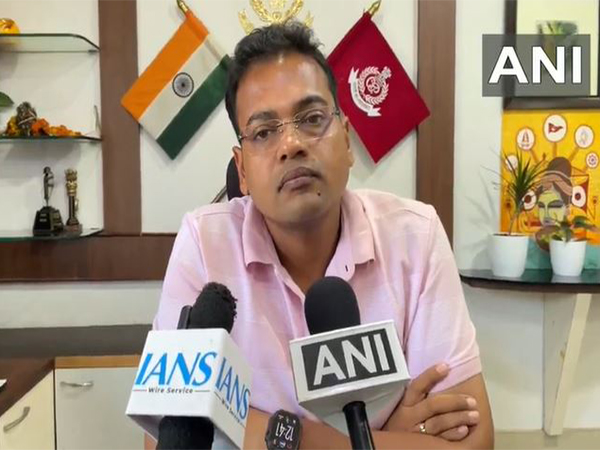Thiruvananthapuram (Kerala) [India], July 2 (ANI): Kerala Health Minister Veena George held a high-level meeting of the health department in the background of two deaths and one case of hospitalisation due to amoebic meningoencephalitis in the last two months.
It has been decided that special guidelines will be released for the state regarding amoebic meningoencephalitis. Instructions have been given to strengthen awareness. The amoeba enters the brain through rare openings in the thin membrane that separates the nose from the brain or through a hole in the eardrum and causes meningoencephalitis. Therefore, children with pus in their ears should not bathe in ponds, stagnant water, etc. The minister requested to seek treatment immediately if symptoms are seen.
Caution should be exercised against amoebic meningoencephalitis. Bathing in stagnant water and diving in water should be avoided as much as possible. Water in water theme parks and swimming pools should be properly chlorinated to ensure that it is clean.
Notably, Amoebic meningoencephalitis is a very rare disease in people who have contact with standing or running water sources. There are very few scientific studies and study results about this rare disease. Statistics indicate that only 2.6 out of 10 lakh people who come in contact with such water in the world get this disease. The disease usually occurs when Naegleria fowleri, a type of amoeba, infects the brain.
This disease is not transmitted from human to human. The amoeba that lives in stagnant water enters the human body through the thin skin of the nose and causes encephalitis, which seriously affects the brain. Free-living amoebas are generally found in stagnant water bodies. Bacteria from the amoeba family are transmitted through the fine pores in the nose by bathing in drains or pools. Enters the human body and severely affects the brain and causes encephalitis.
Symptoms appear within one to nine days of infection. The primary symptoms are severe headache, fever, nausea, vomiting and difficulty turning the neck. Later, when it reaches a critical condition, there are symptoms like epilepsy, loss of consciousness and memory loss. Diagnosis is made by taking fluid from the spinal cord and testing it. People who bathe in stagnant water should report these symptoms and seek treatment.
Amoeba enters the body through bathing in stagnant or unclean water. So avoid getting sick by bathing in stagnant water or drains and not pouring water into your nose. Do not ignore symptoms and see a doctor as soon as possible. There is no problem with children bathing in properly chlorinated swimming pools, a press release from the health minister’s office said. (ANI)
Disclaimer: This story is auto-generated from a syndicated feed of ANI; only the image & headline may have been reworked by News Services Division of World News Network Inc Ltd and Palghar News and Pune News and World News
HINDI, MARATHI, GUJARATI, TAMIL, TELUGU, BENGALI, KANNADA, ORIYA, PUNJABI, URDU, MALAYALAM
For more details and packages
















